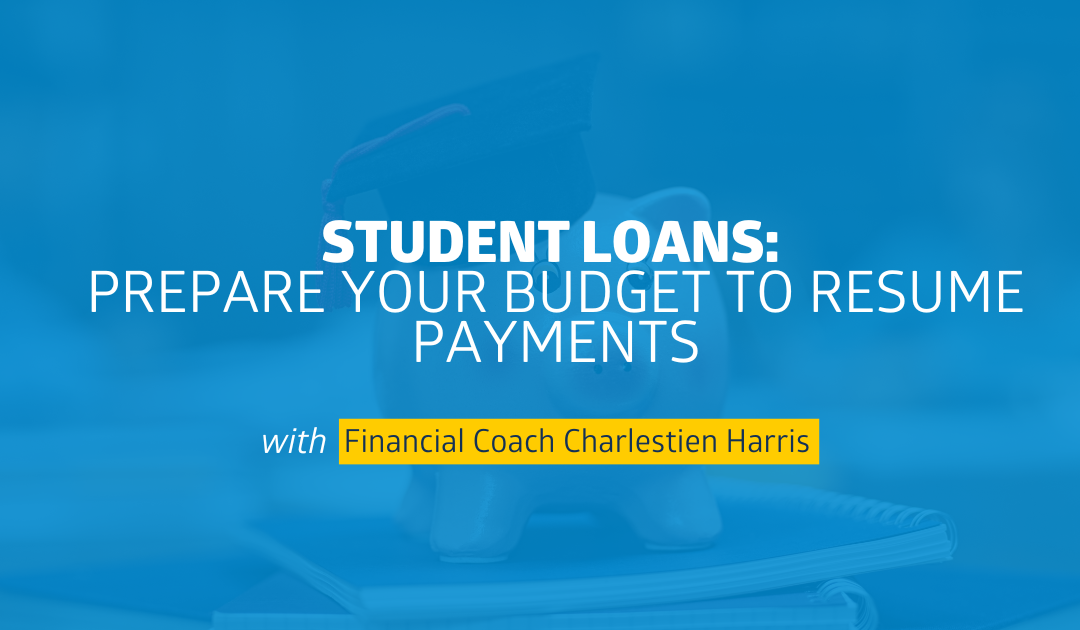By: Charlestien Harris
Nothing can destroy a well-planned budget more than an unexpected expense or an unplanned event. But, in this case, the expense can be predicted because the U.S. Department of Education has announced a final extension of the pause on student loan repayment, interest, and collections through December 31. Student loan borrowers should plan to resume payments in January 2023.
With a possible change in our economy, the price of everyday essentials, and the lingering effects of COVID-19 cases, President Biden has made it a priority to address the issue of pandemic-related relief. The president has proposed that the pause in student loan payments should be phased out responsibly so that people do not suffer unnecessary financial hardship. The administration wants to address the possible financial shock of the pandemic payment pause by smoothing the borrower’s transition back into resuming payments and helping those borrowers at highest risk of delinquencies or default once payments resume.
One way the Department of Education wants to assist those borrowers is to provide targeted student debt cancellation to borrowers with loans held by the Department of Education. There are some guidelines that have been developed and will be used to determine how the loan forgiveness will be issued. Two factors that will be considered are income and Pell Grant status.
A Pell Grant is a monetary subsidy the federal government provides for students who need it to help pay for college. Federal Pell Grants are awarded to students with financial need, who have not earned their first bachelor’s degree, or who are enrolled in certain post-baccalaureate programs, through participating institutions. Grants, unlike loans, do not have to be repaid. Under this program, eligible students receive a specified amount of financial aid each year according to their reported income.
Borrowers with annual income during the pandemic of under $125,000 (for individuals) or under $250,000 (for married couples or heads of households) who received a Pell Grant in college will be eligible for up to $20,000 in debt cancellation. Borrowers who met those income standards but did not receive a Pell Grant will be eligible for up to $10,000 in relief. The Department will be announcing further details on how borrowers can claim this relief in the near future. The application will be available when the pause on federal student loan repayments terminates at the end of the year.
This student loan forgiveness program could possibly reduce your debt and help you to balance your budget more efficiently. Keep these factors in mind when resuming your student loan payments:
- Consider your current cash flow
- Schedule your payment around the same time each month
- Try to adjust other expenses as needed
- Track your spending
- Prioritize your expenses
- Always review your budget to make sure you stay on track with covering your monthly expenses
These are just a few suggestions that might help you resume – and afford – your student loan payments after the long pause. As always, budgeting is one of the most important financial moves when it comes to improving your financial health and wealth.
For more information on this and other financial topics, you can call me at 662-624-5776, or email me at Charlestien.Harris@southernpartners.org.
Until next week — stay financially fit!

